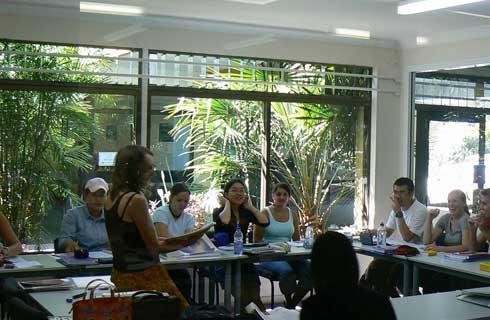国际学生入学条件
Students must have the following:
Graduate from a CCNE or NLNAC accredited nursing program with a baccalaureate or advanced degree in nursing.
Possess an unencumbered Registered Nurse (RN) license in one of the U.S. states or territories
An Iowa RN License will be required upon matriculation
Minimum of one year staff nurse Intensive Care Unit (ICU) experience
Current certifications in BLS, ACLS, and PALS
Completion of the statistics prerequisite course by the start of the program
An upper-level statistics course needs to be completed within five (5) years of the application deadline. Acceptable University of Iowa courses are as follows: STAT:3510 (22S:101), PSQF:5143 (07P:143), STAT:5543 (22S:102), or BIOS:5110 (171:161). Equivalent courses from other colleges will be accepted as well.
English Language Requirements:
An IELTS (International English Language Testing System) total score of 7.0, with no sub score less than 6.0.
TOEFL score requirements with score of 81 or higher on the Internet-based version of the test (iBT) and newly admitted graduate students who present iBT scores below 100 on the PBT.
TOEFL score requirements with score of 550 on Paper-based test (PBT) and newly admitted graduate students who present TOEFL scores below 600 on the PBT.
IDP—雅思考试联合主办方

雅思考试总分
7.0
- 雅思总分:7
- 托福网考总分:81
- 托福笔试总分:550
- 其他语言考试:DuoLingo (DET) - Score of 105+
CRICOS代码:
申请截止日期: 请与IDP联系 以获取详细信息。
课程简介
The Doctor of Nursing Practice (DNP) program is designed to prepare clinicians with the knowledge and skills to provide the highest standard of care for individuals, families, and communities and navigate today's complex health care systems. Nurse managers and administrators will gain the knowledge and skills necessary to develop, implement, and monitor programs of care and policies in complex organizations. Graduates will be able to utilize scientific underpinnings for nursing practice, demonstrate organizational and systems leadership, evaluate clinical scholarship and analytical methods for evidence-based practice, evaluate information systems and patient care technology for the improvement and transformation of health care, influence health care policy for advocacy in health care, collaborate interprofessionally to improve patient and population health outcomes, design clinical prevention and population health interventions and demonstrate expertise in advanced nursing practice.
相关申请
 预科
预科 奖学金
奖学金 实习机会
实习机会 在校学习
在校学习 跨境学习
跨境学习 校园授课-线上开始
校园授课-线上开始 在线/远程学习
在线/远程学习
开学时间&学费
学费信息仅供参考,请与IDP联系以获取详细信息
| 开学时间 | 时长 | 学费 | 地点 |
|---|
学校排名

世界排名201
数据源:
泰晤士高等教育世界大学排名
关于爱荷华大学

爱荷华大学坐落于美国中部的爱荷华州东部的一个小城——爱荷华城。爱荷华大学现有超过29000名学生,其中64%来自艾奥瓦州,21%来自周边各州。她也招收大量国际学生,分别来自109个国家和地区,占全校总人数的7%。爱荷华大学在医学、基因、水力学、语言听力,专科方面世界闻名,同时在农业医药、生物分析、生物工程、生物医学,药理学等领域有重要的创新。她在听力学、版画制作、写作、言语病理学、护理服务管理等方向有世界一流的研究生教育项目。以为代表的该校科学家是美国空间科学研究的开创者。他们设计和建造的研究设备被超过50个美国人造卫星和空间探测器使用。该校下属的医院已经连续十多年被评为美国最好的医院之一。该校的工程学院发展了世界领先的高级驾驶模拟器。同时爱荷华大学的医学专科是全世界著名的,已经连续17年被评为全美最佳医院。该校是全美最早开设精算专业的大学之一,在业界有着丰富的校友资源,仅2000年之后取得北美精算师(FSA/FCAS)头衔的该校校友已经超过百人。爱荷华大学位于爱荷华州西南的爱荷华市,紧邻爱荷华河而建,校园占地 1900 英亩,是美国重要的公立研究院校。 爱荷华大学共有 11 个院系,文理学院最大,占每年本科招生的最大比例。 亨利.B.特彼商学院、罗伊.J和露西尔.A.卡弗医学院及教育系、工程系、法律系、护理系、药剂系也都招收本科生。牙医系和公共健康系与研究生院一起,提供研究生教育。
本校相关课程
其他相关课程

实用护理文凭
 荷兰学院
荷兰学院学历文凭
Bachelor Degree
开学日期
课程费用总额


Master of Science in Nursing (ME-MSN)
 旧金山大学
旧金山大学学历文凭
Masters Degree
开学日期
课程费用总额


Doctor of Philosophy in Nursing
 洛马林达大学
洛马林达大学学历文凭
Ph.D.
开学日期
课程费用总额


Bachelor of Science in Nursing
 威斯康星大学密尔沃基分校
威斯康星大学密尔沃基分校学历文凭
Bachelor Degree
开学日期
课程费用总额


Doctor of Nursing Practice in Family Nurse Practitioner
 华盛顿大学
华盛顿大学泰晤士高等教育世界大学排名:25
学历文凭
Ph.D.
开学日期
课程费用总额


护理科学学士学位
 西三一大学
西三一大学学历文凭
Bachelor Degree
开学日期
课程费用总额





















